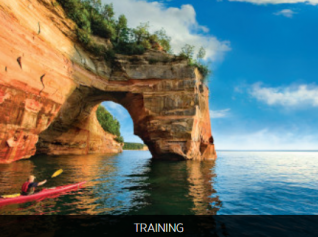SITE offers risk management tips for travel planners
Never mind hurricanes and floods; we live in a world where shooters pop up in airports.
The events in LA highlight the importance of evaluating the possible risks involved in travel and planning in advance how to manage them.
In a timely coincidence, the Society of Incentive and Travel Executives has released a new white paper, "Risk Assessment/Management for Incentive Events," that lays out some simple guidelines for incentive travel planners to follow.
First consider the risks that might disrupt your program: weather and natural disasters, government and labor unrest, transportation disruption, medical emergencies, currency fluctuations and acts of terrorism.
Then follow the five basic steps of risk management:
1) Identify the risk(s)
2) Assess the impact on key assets or events
3) Determine the potential consequences of specific risks
4) Determine ways to reduce risks
5) Create and prioritize risk management procedures based on their importance.
You also can approach risk management by looking at the affects of risk events on the various groups involved in an incentive program, including attendees, employees, contractors, performers, disabled persons, expectant mothers, and local residents, the study says.
Give each group a score of 1 to 3 on the harm involved, and each risk a score between 1 and 3 on how likely it is to occur.
Multiplying the two will give you a risk factor between 1 and 9.
If the risk is low, 3 or below, no action may be necessary.
But if it is 6 or above, consider methods to reduce the risk, consider eliminating the activity from the program altogether, or, at the least, advise the client and the participants about the risks in writing.
The study also offers the following tips:
Do
• Check and re-check everything
• Get everything in writing
• Preview the events as much as possible yourself
• Prepare to accept a degree of risk but prepare as best you can
• Have a crisis response plan
• Train your staff how to respond to unforeseen events
• Rehearse handling of potential risks
• Make contingency plans.
Don’t
• Use unknown suppliers
• Go to high-risk locations
• Include extreme sports
• Operate on the assumption that the risk will not occur.
"While every motivational program or event is designed to be an unforgettable experience, no planner wants it remembered as a disaster," SITE says.
The complete white paper can be downloaded at http://www.siteglobal.com/p/cm/ld/fid=205.
By Cheryl Rosen
 United Kingdom
United Kingdom United States
United States Asia Pacific
Asia Pacific












































EU airports bring back 100ml liquid rule
British Airways passengers endure 11-hour 'flight to nowhere'
CLIA: Anti-cruise demos could cause itinerary changes in Europe
Co-pilot faints, easyJet flight issues ‘red alert’
Dozens fall ill in P&O Cruises ship outbreak